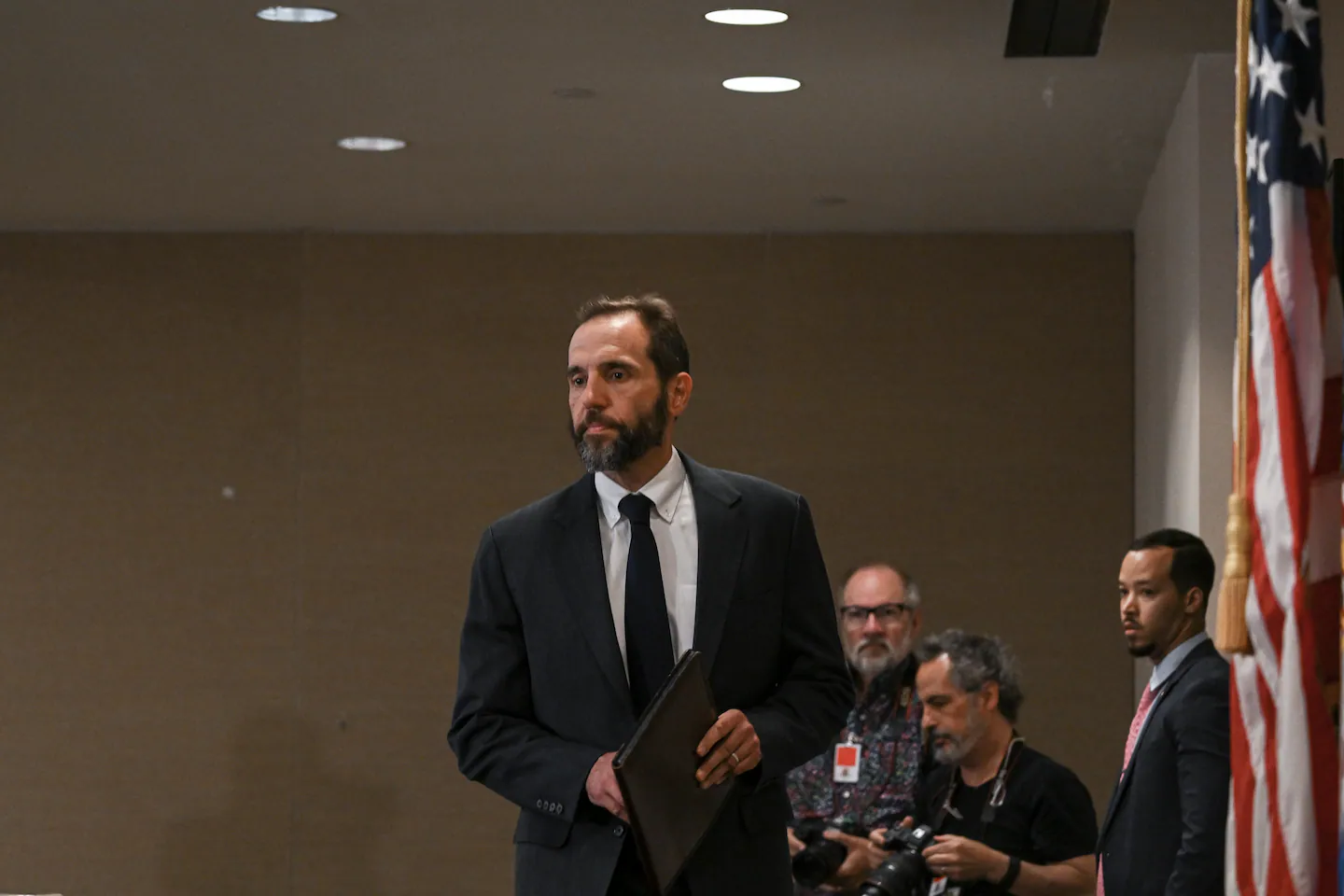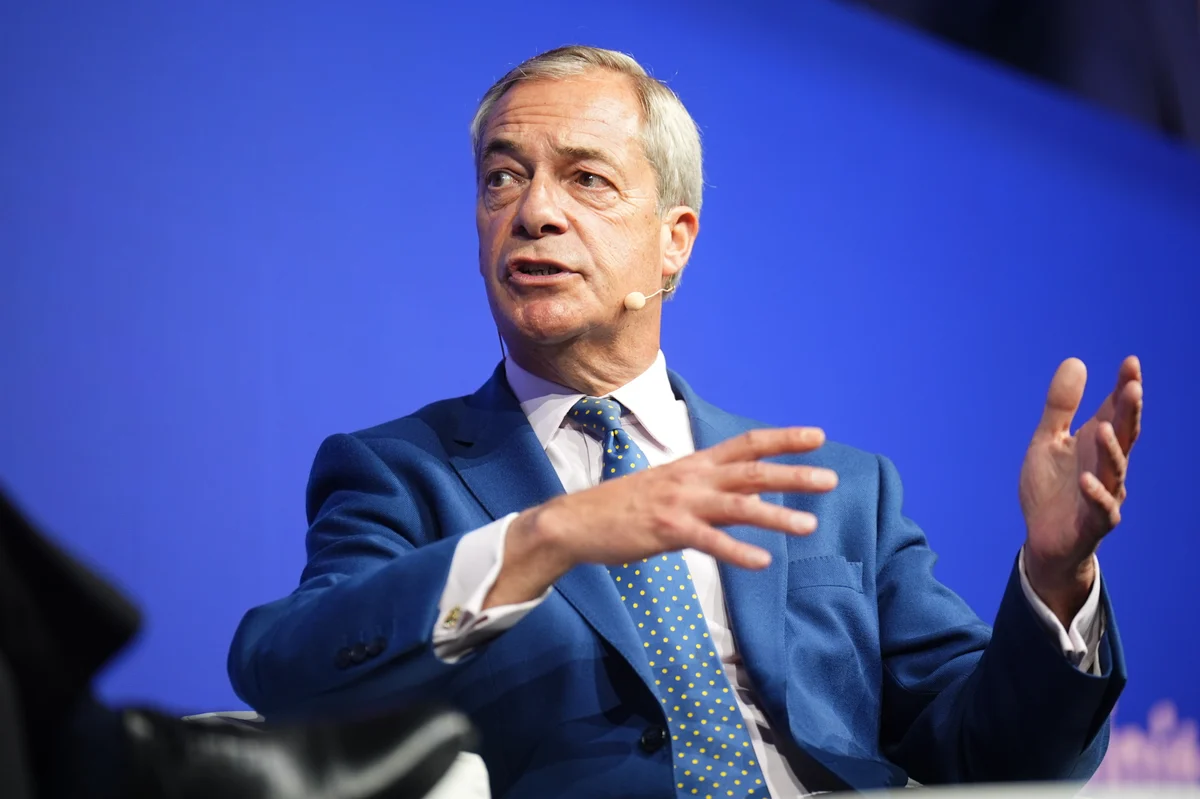Copyright The Boston Globe

Quite the opposite, in fact. Smith, who spent more than two years aggressively collecting evidence to prove Trump mishandled classified documents and tried to overturn the results of the 2020 election, appears eager to publicly challenge a foundational pillar of MAGA canon: that the president was a sinned-upon innocent who did nothing to deserve scrutiny, much less two prosecutions. Smith has told people in his orbit that he welcomes the opportunity to present the public case against Trump denied to him by the Supreme Court decision asserting broad presidential immunity from prosecution and adverse rulings from a Trump-appointed judge on the federal bench in Florida. Whether Smith gets the chance to confront his accusers on the biggest official stage available to him, a public House or Senate hearing, remains very much an open question. Some Republicans have privately expressed concern that Trump’s quest for vengeance could backfire by giving a credible anticorruption investigator an open mic. “Deranged Jack Smith is a criminal!!!” Trump said on social media Wednesday after House Republicans released documents showing that the special counsel’s office examined communications between Trump and 160 Republicans as part of the inquiry into his efforts to overturn the 2020 election. He proceeded to place Smith at the top of his prosecutorial hit list, along with the two top Biden appointees who picked Smith, a veteran war crimes prosecutor, for the job: Attorney General Merrick Garland and his top deputy, Lisa O. Monaco. But in two low-key but self-assured appearances over the past six weeks, Smith has made it unmistakably clear that he will not only defend himself but take a hammer to Trump’s exaggerated or false claims about his work as special counsel. “The idea that politics played a role in who worked on that case, or who got chosen, is ludicrous,” Smith said during an early October interview with Andrew Weissmann, another former prosecutor targeted by Trump, at the University College London. Smith said he had “tons of evidence” that Trump had willingly retained the classified documents at his Florida residence in Mar-a-Lago and tried “to obstruct the investigation.” The president’s Republican allies in Congress have begun taking the first steps to investigate Smith at the urging of the White House and far-right activists. Their efforts are animated by a belief that Smith, despite his claim to the contrary, went beyond the bounds of an impartial investigation to go after Republicans. In recent days, they have made public hundreds of previously unreleased documents showing that Justice Department prosecutors, before and after Smith’s appointment, subpoenaed records of Republican lawmakers and Trump-allied groups. But the lawmakers are divided on precisely how to proceed, according to interviews with lawmakers and their aides. Some have expressed concerns about giving Smith a public platform, unless the records trawl uncovers something so damning it shatters his credibility. Nor do they see much political upside in rehashing an issue of searing import to the president but of little interest to voters in battleground districts, at a time when approval of Trump’s performance on the economy and immigration is sagging. Yet they are forging ahead at Trump’s goading. On Oct. 10, the GOP-controlled House Judiciary Committee summoned Smith to testify behind closed doors about what Republicans on the panel called “partisan and politically motivated prosecutions” of Trump. Earlier this year, three former Justice Department prosecutors — J.P. Cooney, Jay Bratt, and Thomas Windom — appeared for closed-door interviews that revealed little new information, according to Republicans on the panel. Smith, up next, has begun moving his own chess pieces. Through his lawyers, he demanded public hearings, along with asking the Justice Department to give him broad latitude to discuss evidence presented to grand juries. Neither request has thus far elicited a response. “Name the time and place,” Lanny Breuer, one of Smith’s lawyers, said in a statement. “Jack will be there.” The House committee, the Justice Department, and the FBI did not respond to requests for comment. Representative Jim Jordan, an Ohio Republican who leads the committee, is likely to issue a subpoena in the coming weeks rather than accede to Smith’s demands for a public hearing, according to a person familiar with his thinking, speaking on the condition of anonymity to discuss internal deliberations. It is highly doubtful that Smith would defy a committee subpoena, people close to him said. But there is a chance that the Senate will grant Smith his request for a public hearing before he is confronted with that choice. Some Senate Republicans, particularly those who were the most vocal supporters of Trump’s efforts to overturn the 2020 election, have suggested they would welcome the opportunity to attack Smith on camera. “He’s a dirtbag! A dirtbag!” said Senator Eric Schmitt, a Missouri Republican who sits on the Senate Judiciary Committee, at a news conference last week. “We should have Watergate-style hearings on this for months,” he added. But senior Republicans are less enthusiastic. Senator Ron Johnson, a Wisconsin Republican who is close to Trump, and the committee’s chair, Senator Chuck Grassley of Iowa, have told colleagues they want to move more deliberately out of concern that rushing into a hearing would play into Smith’s hands, according to aides. The smarter play, they have said, is to intensify the effort by Republican representatives on Capitol Hill, the White House, the Justice Department, and the FBI to unearth, release, and publicize internal documents that would prove Smith had engaged in a politically motivated witch hunt. Grassley last month released an unclassified 2023 document showing that the FBI analyzed phone records of nine Republican lawmakers as part of the Trump election investigation. Senator Josh Hawley, a Missouri Republican, claimed that the bureau “tapped” his phone. But the one-page document revealed only that Smith’s team sought approval to retrieve metadata to monitor communications among Trump, his associates, and lawmakers around the time of the Jan. 6, 2021, attack on the Capitol. Hawley, who offered a fist pump to election-denying demonstrators at the Capitol and was captured on security footage fleeing from the mob, refused to correct the inaccuracy. Since then, Grassley has released hundreds of pages of documents from the Smith investigation, obtained from an FBI “whistle-blower,” even though the bureau’s leadership has granted Republican lawmakers in the House wide access to records. Among the most recent revelations included in the Senate batch: The special counsel sought information about communication between the Trump camp and news outlets, including Fox News and Newsmax. That was in addition to seeking interactions involving a top Trump aide, Stephen Miller, and requesting records from Trump-aligned groups that had not even been incorporated at the time of the attack on the Capitol. Smith’s spokesperson did not comment on the Republican claims. But people familiar with the inner workings of the special counsel’s investigation, who requested anonymity to publicly discuss the matter, said Smith’s team was casting the widest possible net to collect information about potentially illegal actions taken by Trump and his team, not expanding the list of prosecutorial targets.



